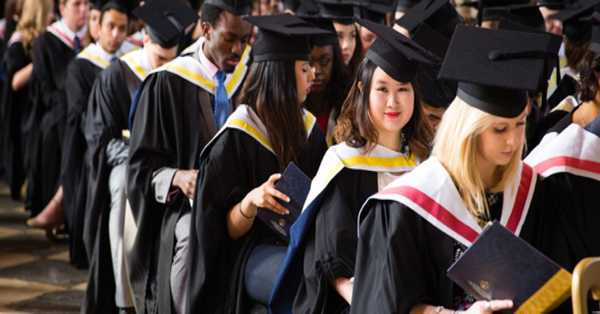U.S. schools and colleges saw a 20% drop in the quantity of unfamiliar understudies because of the pandemic. However enlistment numbers are bouncing back, it is representing a major issue for universities.
The Biden organization is wanting to bait back huge number of worldwide understudies who avoided U.S. grounds during the pandemic. Unfamiliar enlistment fell by 20% last year. What's more, that cost schools and colleges nearly $10 billion in lost income. Here's the issue with tricking the understudies back, however - unfamiliar understudies were getting some distance from the U.S. indeed, even before the pandemic. Karin Fischer reports.
KARIN FISCHER, BYLINE :
Foreign understudies carry a ton to the table. They offer U.S. universities variety, minds and strong educational cost. Worldwide understudies are more probable than Americans to pay full cargo. At state funded colleges, the out-of-state educational cost they pay has assisted make with increasing for a drop in state subsidizing. Robert Daly heads the Kissinger Institute on China and the United States at the Wilson Center. He contends that schools have gotten too dependent on understudies from one nation, China.
ROBERT DALY :
They need the educational cost. They need full, four-year, out-of-state educational cost payers. They've gotten dependent on this cash.
FISCHER :
And when the pandemic sliced away a huge chunk of foreign students, the new administration took note. Higher education is one of the nation's largest service exports, bigger than the often-touted ag exports like corn and soybeans. Unlike the Trump administration's hostility to foreigners, the Biden administration recently called it a foreign policy imperative that the U.S. remain the top study destination for international students. It's putting students first in line for interviews and visa processing at U.S. consulates around the world. And some foreign students are starting to come back. But for many, it remains a hard sell.
LUKMAN ARSALAN :
Good evening for those of you in China.
FISCHER :
Here's the Zoom enrolling meeting put on by Franklin and Marshall, a little aesthetic sciences school in Lancaster, Pa. In the same way as other schools, Franklin and Marshall depends intensely on unfamiliar understudies. Not exclusively was he managing the pandemic, yet Dean of Admissions Lukman Arsalan was holding this meeting two days after the fierce uprising at the U.S. State house.
ARSALAN :
It may create the impression that the U.S. is in bedlam. What's more, I needed to recognize that.
FISCHER :
Safety is a major concern. Also, against Asian disdain wrongdoings have made a few understudies rethink their fates in the U.S. Lily Cao is an understudy from China who just moved on from Mount Holyoke. From the get-go in the pandemic, she was stood up to in a supermarket by a lady blaming her for spreading the Covid.
LILY CAO :
previously, I have contemplated, you know, remaining in the U.S. also, proceeding with my vocation. Be that as it may, at this moment, after COVID, I don't know any longer.
FISCHER :
This new reluctance spells huge worries for universities and to the bigger U.S. economy, which is pushed by foreigner business people, a considerable lot of whom came here as understudies. In 2018, unfamiliar enlistment topped at 1.1 million understudies. What's more, it's been declining from that point forward, as nations like Australia, Canada and the U.K. redirect unfamiliar understudies. Emily Dobson is a school instructor in Brazil. She says U.S. schools simply aren't up front for her understudies any longer.
